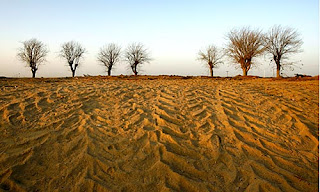A
Ponzi scheme, named after 1920s financier Charles
Ponzi, is an investment operation that offers high returns to investors based on an increasing influx of money from new investors. It is a classic pyramid scheme based on speculation, greed and naivete. Since the
Madoff scandal a few days back, this term has been thrown around a lot (Bernard
Madoff apparently lead an investment firm whose
Ponzi investment strategy began to fall apart in the face of the financial meltdown--some 50 billion dollars evaporated). But, really, the
Ponzi strategy is not all that different from what was happening in the housing market, the financial sector and even in the average American household these last 15 years.
Based on speculation, rather than economic fundamentals, we all have been deluding ourselves that a) the stock market can only go up, b) the value of our homes can only go up, and c) we can live on credit indefinitely. But when the economy goes in the tank, our savings and the equity in our homes vanishes, while the bills keep rolling in. This crippling delusion is connected to all boom/bust cycles and underlies the vast social devastation that occurs when the bubble pops.
There are other kinds of value that do not decline with the markets and we might start investing in those rather than placing our savings with the running dogs of Wall Street. What, other than the almighty dollar, has value? you may ask. Let offer a few examples:
1) personal talent: invest in your inner musician, artist, architect, gardener, inventor,
tae kwan do master, sculptor, etc...
2) education: nothing can enrich one's life more than broadening one's mental horizons
3) experience: a rich life means an active engagement with world around you
4) vital communities: support your community institutions, festivals and businesses with your presence as well as your wallet
5) local arts scene: work to support or develop a regional musical/artistic/theatrical identity--know who is who on the scene and attend and/or sponsor events
6) local cuisine: support local restaurants, bakeries and chefs
7) world travel: not everything worthwhile is local, get out of your town or, better, country to know the world in which you live
8) the commons: support efforts to conserve local forests, wetlands, mountains, rivers, etc... quality of life is inseparable from our natural environment (most of us, I think, would rather live on the edge of a forest than on the edge of a strip mall or sub-division)
9) end poverty: actively engage with the causes of poverty in your area and support organizations that address these issues
10) get religion: support, through your attendance and wallet, a religious organization of your choice. Church, temple or mosque, many of these organizations gather local resources and invest heavily in items 1-9 -- even the non-religious can recognize the positive effect of local religious organizations on soup kitchens, food banks, scholarships, global initiatives and environmental stewardship.
But, some may contend, money must be made to support most of the above items. And I heartily agree! Communities cannot be supported on good will alone. The modest suggestion being made here is that instead of throwing good money after bad into speculative industries, allocate some of that (we can now call it for what it is)
gambling cash into endeavors that will enhance the quality of our lives and the lives of those around us. So, reject your inner
Ponzi and support the vitality that flows from personal
accomplishment and active and supportive communities.
